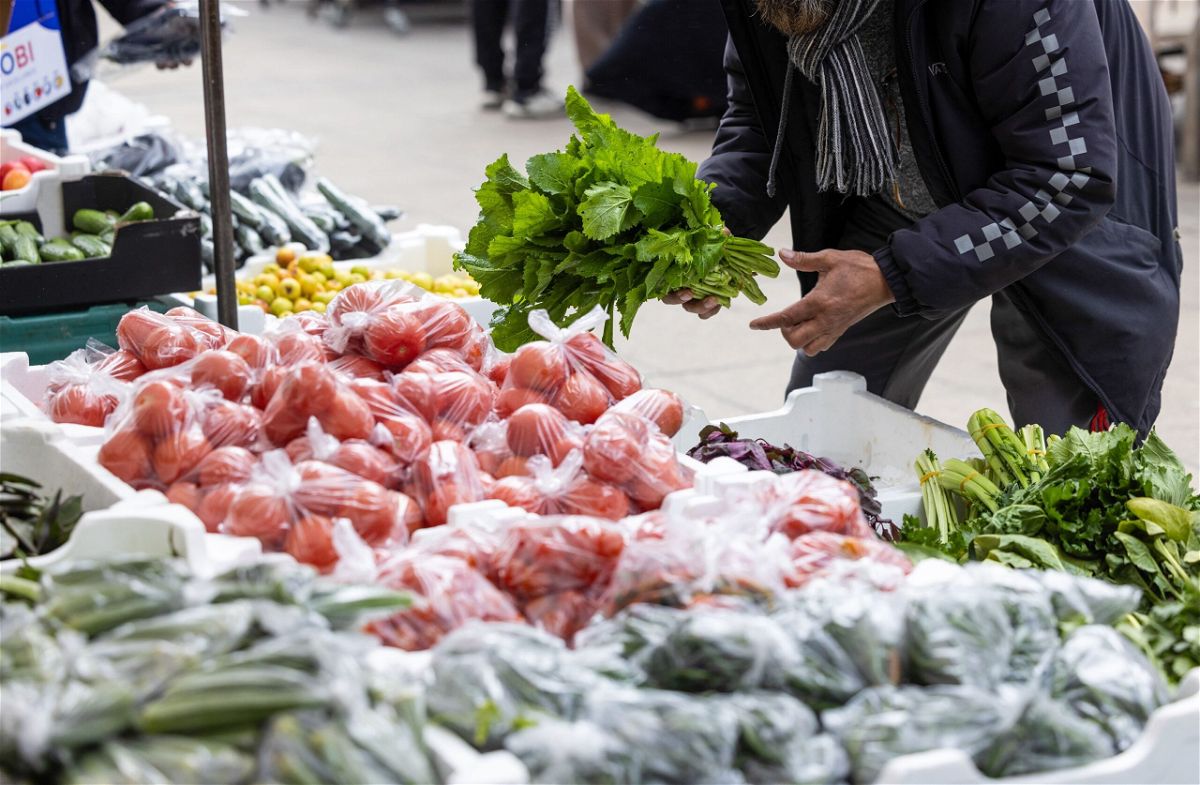


By Anna Cooban, CNN
London (CNN) — British business groups are warning that newly announced post-Brexit charges on plant and animal imports could push up food prices not long after food inflation came down from double-digit rates.
From April 30, UK businesses will have to pay up to £145 ($184) per delivery of most animal products, plants or plant products imported from the European Union through the Port of Dover and Eurotunnel, the Department for Environment, Food and Rural Affairs said Wednesday. The port and the undersea tunnel beneath the English Channel handle the majority of UK food imports.
Importers will have to pay £29 ($37) per type of product, up to a maximum of £145 for a single delivery containing several different products.
In practice, this means that a truck loaded with, say, a single type of meat will incur at least a £29 charge, while a same-sized truck carrying different meats, yoghurts and cheeses could incur the highest charge. And that maximum may have to be paid multiple times, depending on the truck’s origin and destination.
The charges “will be one of the factors that perhaps stops food inflation continuing to fall,” according to Tom Southall, deputy chief executive of the Cold Chain Federation, which represents UK businesses delivering perishable produce, which needs chilled storage.
That’s because UK importers are likely to pass the new levies onto consumers, as trade groups have warned.
Annual UK food price inflation topped 19% in March 2023, the highest rate in 45 years, and stood at more than 10% as recently as in October. By February, it had eased to 5%.
William Bain, head of trade policy at the British Chambers of Commerce, said the new charges dealt a “hammer blow for small and medium-sized (UK) importers” and were “deeply concerning for retailers, cafes and restaurants.”
“We urge the government to reconsider their import charge plans in the coming days. Failing to do so risks higher prices for us all, at a time when we should be bearing down on business costs and food price inflation.”
Smaller European exporters may also be badly hit, according to Southall, because British businesses may ask these exporters to foot some of the extra costs.
Some are already “deciding that it is too expensive or too much hassle to serve the UK,” he told CNN. While the supply of most products in supermarkets will not be affected, the availability of “smaller, specialist products” will be. “(Britons) might not have such a well-stocked cheese or meat deli counter,” he added.
The new charges are intended to help the government cover the cost of operating its post-Brexit border facilities and will come into force on the same day that physical checks are introduced on many animal and plant products from the EU.
Trade groups have also criticized the lack of time given to businesses to prepare for the latest changes.
James Barnes, chairman of the Horticultural Trades Association, said Wednesday’s announcement came at the “eleventh hour” and confirmed worries that “in just one month, UK horticulture’s competitiveness will again be hit by a cost hike for no material gain.”
“The charges will undoubtedly increase costs, potentially reduce consumer choice and increase the likelihood of empty shelves,” he said in a statement.
The association represents around 1,400 retailers, growers, manufacturers and landscapers that rely on imported plants.
A government spokesperson said the new charges “were at the bottom end of the range” discussed with UK businesses during a consultation period last summer.
The £145 cap “has been set specifically to help smaller businesses,” the spokesperson told CNN. “We are committed to supporting businesses of all sizes and across all sectors as they adapt to new border checks, and maintaining the smooth flow of imported goods.”
The-CNN-Wire
™ & © 2024 Cable News Network, Inc., a Warner Bros. Discovery Company. All rights reserved.